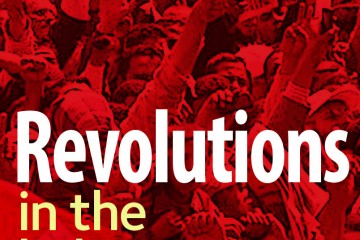
Revolutions in the Balance
Ignited in Tunisia in late 2010, the Arab Uprisings quickly swept through a wider region better known for sectarian, ethnic and religious cleavages. In Tahrir Square and Benghazi, citizens – particularly millions of youth – rallied around common demands such as bread, freedom and social justice. Almost three years later, however, the revolutions that began with such high hopes are increasingly defined by ongoing political chaos. Revolution has led to counter-revolution and military coups. For scholars interested in social movements, particularly religious-based ones, these ongoing events are historic. The evolving nature of the social movements has injected a great deal of uncertainty in the region, and especially the foreign ministries of key players like Iran, Turkey and Israel. While the …
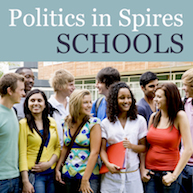
Michael Freeden on Political Ideologies
Why is the study of ideologies so important for understanding—and navigating through—the social world of which we are part? And why do we have to cast aside old approaches that regard ideologies as abstract, superimposed by manipulative and power-thirsty individuals and groups, and opposed to the pragmatism of political life? The simple answer is that we always live in a world of ideologies and every one of us has one, whether we are aware of it or not, and whether it is clearly expressed or just a vaguer set of beliefs and perceptions.
Although every one of us is unique as a human being, we also display patterns of behaviour we share in common, even if they differ on particulars. Those include patterns of thinking about our society and about other societies. Ideologies are one such pattern, concerning the political arrangements and processes of a political community. Sometimes these are on a grand scale: visions of a rich and harmonious future, or plans for control and domination. At other times they are more modest and specific: designing a fairer constitution, reducing poverty, protecting religious beliefs, or having concerns about immigration. Any society will host a number of ideologies, though some may be more prominent and some may be repressed by the groups that are in power. In democratic systems, certainly, ideologies will compete over the control of public policy. Because that competition is over ideas, beliefs and values it is above all conducted through words, oral or written—in Parliamentary debates, newspaper articles, blogs, pamphlets, manifestos, TV programmes and books. Consequently, whoever controls the public language of a society is in a very strong position to implement its policies.

Toward a citizens’ inheritance?
The question of how to justly distribute assets across society is one which has consumed political thinkers for generations. In 1797 the great democratic thinker and politician Tom Paine argued that every citizen reaching 21 years of age should receive the capital sum of £15. This was to be financed from a tax on the wealth people left at death. Two hundred or so years after Paine wrote, scholars are still addressing this question. In 1999 Bruce Ackerman and Anne Alstott, professors at Yale University, argued that every US citizen should receive an $80,000 grant in early adulthood, financed from a tax on wealth and inheritance. These proposals are fundamentally for a citizens’ inheritance: tax a portion of the wealth that is passed between the generations and use this to finance a capital grant in early adulthood for every citizen. Dr Stuart White examines the question of whether citizens’ inheritance something we should have if we want a just society.

Politics In Spires Schools
The divide between subjects taught in the school classroom and university-level research is often exaggerated. Someone between 16-18 would be familiar with many themes addressed by Oxford’s Department of Politics and International Relations (DPIR). Still, some content, and especially research methods, would be completely new. Articles published in this series are part of a pilot scheme to bridge this divide. Recently, postgraduates from the DPIR visited schools to discuss its research programme with 16-18 year-old students taking courses in government and politics. The conversation pointed to many similarities. All A-level Politics courses aim to develop critical awareness of the nature of politics and increase understanding of the structures of authority and power. This is also true of University research. These …
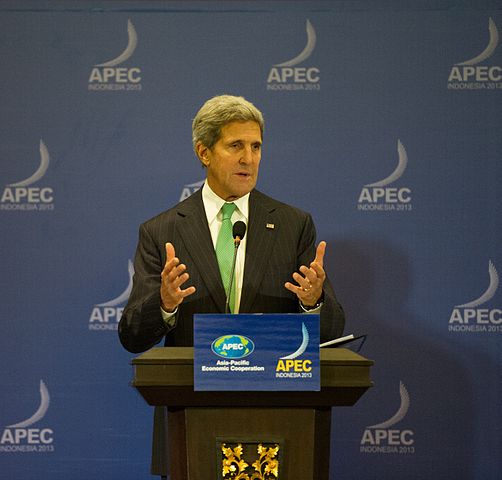
The US Rebalance Off-Balance: Missing the party in Asia
In April 2013, Joseph Yun, then the US Acting Assistant Secretary for East Asia and the Pacific, addressed a Senate Foreign Affairs Subcommittee on the US policy of “rebalance” towards Asia. He argued that this rebalancing, originally introduced by the Obama administration in 2011 as the “pivot”, reflected the “profound recognition that the future prosperity and security of our nation will be defined by events and developments in the region”. Yun went on to explain how the US commitment towards the Asia-Pacific can best be demonstrated, noting that while security and defence-related cooperation is important, US “allies and partners… also tell us that, as we deepen our military engagement, we should continue also to emphasize the diplomatic, development, economic, and people-to-people engagement in order to demonstrate our longer-term commitment to our rebalance strategy.” (Yun Testimony, Washington DC, 25 April 2013).
President Obama’s intended visit to the region in early October 2013 was supposed to be a key plank in demonstrating that commitment. Obama was to have attended the East Asia Summit in Brunei, and the Asia-Pacific Economic Conference held in host-country Indonesia – a country that because of its influence in ASEAN, the G20 and the Organization of Islamic Conference, deserves sustained attention. In Kuala Lumpur, Obama would have attended the Global Entrepreneurship Summit. More importantly still, it would have been the first time that a sitting US president has visited Malaysia since 1966. Obama was also due to be in the Philippines in order both to demonstrate that the US remains a loyal ally when there is a perceived increased threat from China, but probably also to give the message that Manila needs to stay in step with its ASEAN neighbours on the South China Sea dispute and not surprise them with diplomatic positions that leave them nonplussed and that would likely exacerbate the issue.
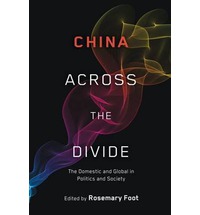
Q&A: China Across the Divide: the domestic and global in politics and society
I recently interviewed Professor Rosemary Foot about her new book, China Across the Divide: the domestic and global in politics and society (New York: Oxford University Press, 2013), as part of Politics and Spires’s OxOn China series.
NH: What is the book about?
RF: The book’s main argument is that, as students of international relations, we need to do more to collapse the divide between the domestic and global spheres of analysis. I make this argument with special reference to China, but I think it can be applied to other countries. I have chosen three main approaches to illustrate this phenomenon of the interconnectedness between the global and domestic levels of analysis. The first section of the book looks at ideas emerging from within China itself, at both mass and elite levels, about the country’s place in the world and how it should conduct its external relations. The argument is not that these ideas determine policy decisions, but help to shape, or set the broad contours of, the decisions that are arrived at. The second section looks at involvement in inter-societal enmeshments between China and other countries, and both the intended and unintended consequences of these linkages. This part of the book looks at the ways in which these non-state relations are transforming not only China itself but also the world of which it is a part. The third section focuses on three major global issues that are salient or intrusive at the domestic level and which require either some alterations in domestic ways of life or generate resistance at the domestic level to that intrusiveness.
NH: What inspired you to write/edit it?
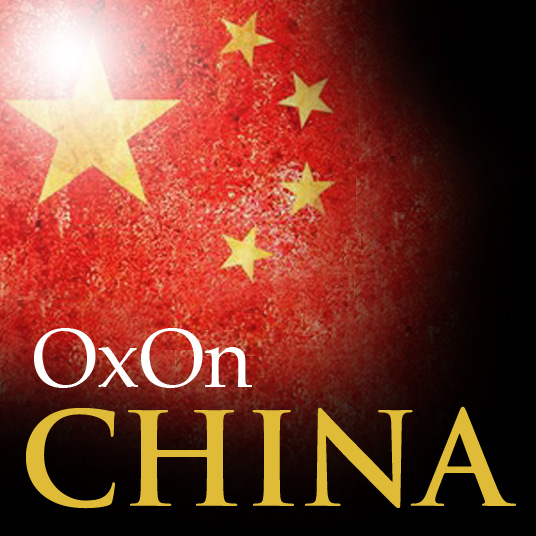
Misperceptions in the Way of Stronger Russia-China Ties
Xi’s recent visit to Russia is unlikely to spur more initiative from Russia to expand bilateral ties beyond trade agreements. This is mainly due to Russia’s misconceptions about China and the nature of their relationship.
As I first crossed the China-Russia border from Heilongjiang Province into Primorsky Krai back in 2007, I stepped into a different world. On the bus that took me across the border, the many Chinese passengers were far more friendly and talkative than the few Russian travellers on board, hauling back Chinese merchandise. I had left Suifenhe, a town bustling with activity, including Russian tourists and traders, and suddenly found myself in a desolate and unwelcoming Pogranichniy.
Most people who have crossed that border will recognise those contrasting impressions, which are symbolic of the two countries’ unequal standing. Last year, China’s GDP grew twice as fast as Russia’s. At the same time, investment as a part of GDP, a measure of potential future growth, was 46 percent in China versus only 23 percent in Russia. China’s growth in influence is truly global and multi-dimensional. Russia’s is mostly limited to the “Near Abroad”, and seems highly correlated with the price of oil and gas. Bilateral trade relations also reflect rising inequalities. Whereas in 2010 China became Russia’s leading trading partner, Russia was not in China’s top 10.Despite an 11 percent rise in the value of trade between the two countries in the past year, the potential for collaboration is far from fulfilled.

The new political regime in China: is it business as usual?
Dramatic changes do not appear to be on the agenda in China, at least at the surface level. The new political regime, under the stewardship of Xi Jinping, inherited an economy with widening socio-economic disparities and accompanying social welfare concerns. Farmers, migrant workers and lower/middle-class urbanities grumble about rising living costs, and a perceived lower quality of life. Their concerns are further cemented by greater public awareness of corruption in both the state and non-state sectors. This may be the cause of lower levels of trust and confidence in public and private institutions by the general public.
But in spite of the discontent, changes are happening. Administrative in nature, perhaps, these changes will have strong implications for state-society relations going forward.
What can we expect?









